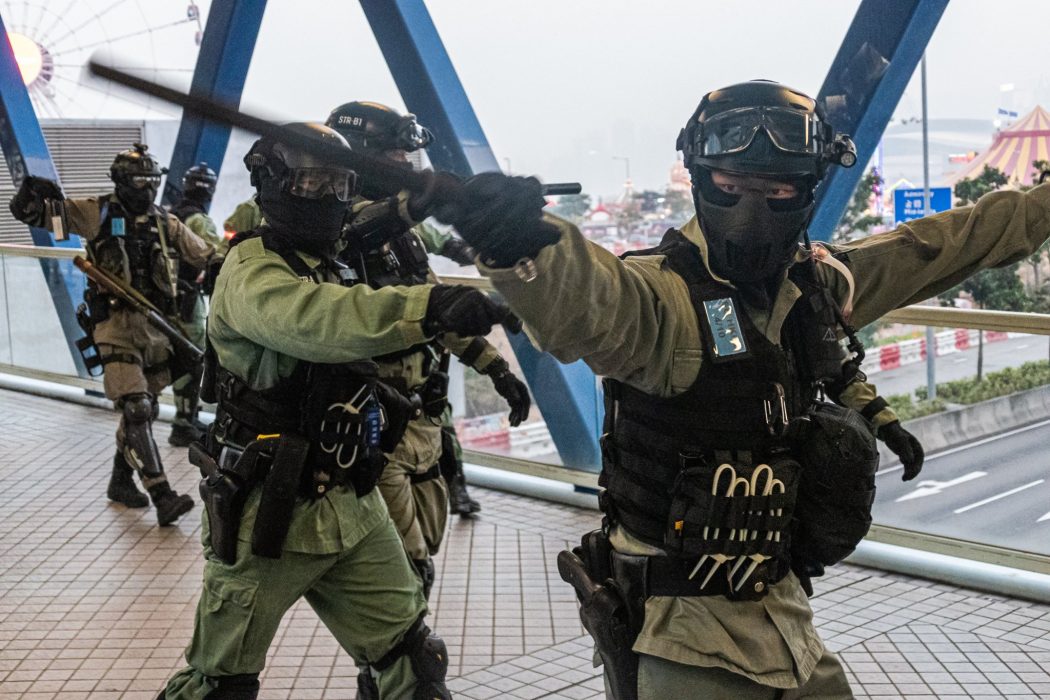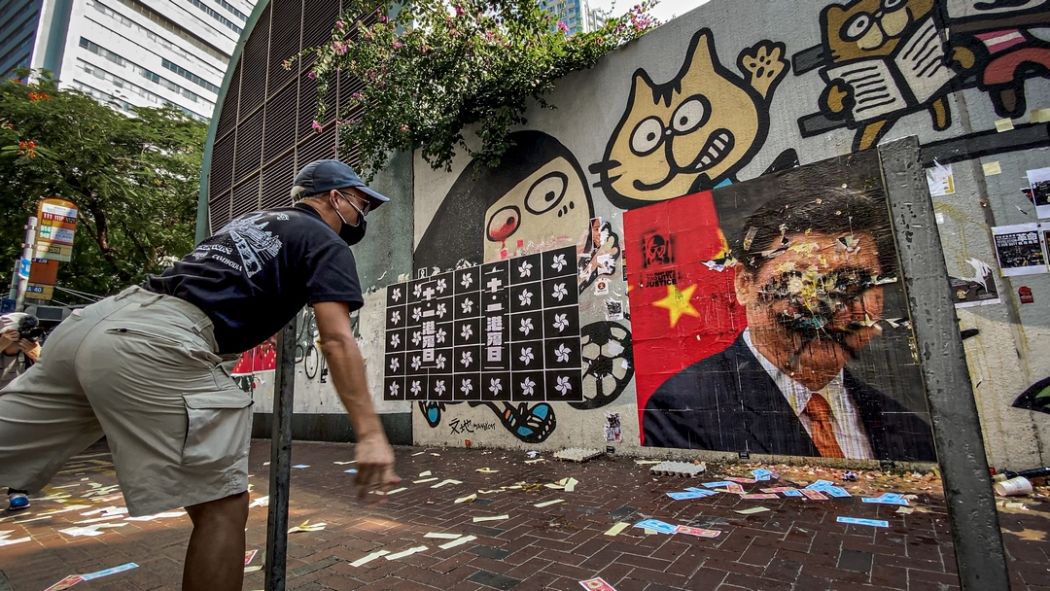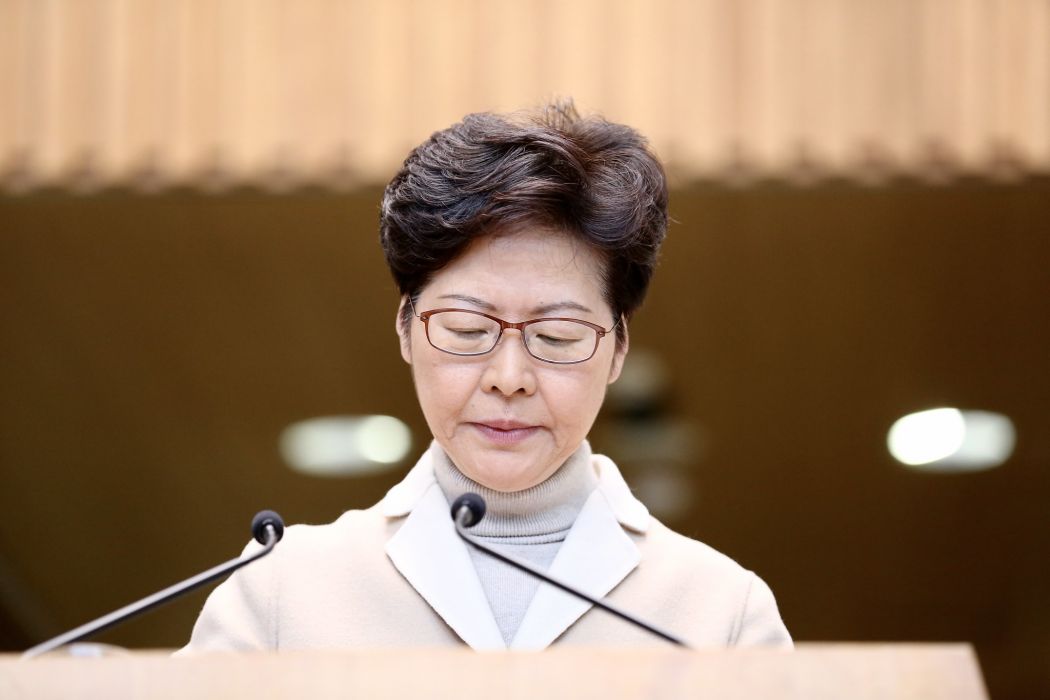Not long ago, I had a meal with a government official. Over the past year, I have on different occasions repeatedly talked about how China needs Hong Kong. He knows this argument, and as someone who is not one of the hardliners, he posed a rhetorical question.
”Beijing indeed needs Hong Kong, but as long as there’s a way to maintain Hong Kong’s economy open and free, while at the same time tightening the control towards the political society, would this really not be acceptable to the international community?”

The official used Singapore as an example. He argued her authoritarian level is (as of now) still higher than that of Hong Kong, yet it does not reduce the international community’s trust in her economic freedom, thus implying that this could be the “beautiful new Hong Kong” in some people’s eyes.
This argument might make sense when used in reference to other places. The problem is that Hong Kong is totally unique. Particularly after last year, Hong Kong simply cannot achieve what Singapore has, for the following reasons.
Firstly, Singapore is an ally of the United States. The population is largely supportive of US leadership in the Asia Pacific region, and in addition Singapore provides the US with a military base considered to be an important strategic location in the region.
On the other hand, Hong Kong is a special administrative region of China, where “One Country” is effecting its transition into “comprehensive rule”.
Once I had another private conversation with a Singaporean government official, talking about how once, under a certain sovereign fund, Temasek lost a certain amount of money. His conclusion was “Let’s just treat it as some sort of protection money.”

Regarding Hong Kong’s reserves, naturally, it is also a part of “One Country.” Recently, China released dollar-denominated government bonds in Hong Kong, with the intention of absorbing US dollars.
The buyer was rumoured to include the Hong Kong Monetary Authority, so it is self-evident where the money goes. In other words, it doesn’t affect US interests whether Singapore is authoritarian or democratic because supporting US interests is approved by both the ruling and opposition camps.
However, if there is no elected parliament, a British-style rule of law, universal values and freedom of speech to act as a safety valve to counterbalance the wilful action of “One Country” in the name of “national interest,” then the amount of interest remaining for each nation will be totally up to the discretion of Beijing, not unlike the situation in Shanghai or Shenzhen.
There’s indeed cooperation between Singapore’s executive, legislative and judicial institutions, which doesn’t really fit the expectation of international corporations hoping to see the rule of law.
But at the same time, Singapore’s system is independent, highly logical, predictable and able to meet international corporations’ desire for stability and adherence to professional ethics.

The due diligence and compliance of Singaporean corporations and banks are quite reliable, which is what international corporations require. In addition, Singapore doesn’t have an “overlord” with a completely opposite set of values, giving them the incentive to break the rules and manipulate accounts.
So naturally, professionals only need to fulfil their official roles to strengthen Singapore’s position as an international financial centre and continue to make money.
Unlike Singapore, Hong Kong now needs to take care of the interest of “One Country.” In the name of “national interest,” state-owned enterprises can demand Hong Kong manipulate accounts and exceed the domains of “Two Systems,” such that eventually, the city’s compliance will not have any credibility any more.
If today, Hong Kong authorities can do as they please without restraints and exert pressure on banks or airlines to dismiss staff based on political incorrectness, then what is going to stop them from using the same reasoning to “nudge” related corporations into “doing them a favour” in the future?
The reason why Shanghai and Shenzhen can’t replace Hong Kong is that neither city can ultimately give confidence to the international community in this respect. Therefore, Singapore might survive with a lower level of rule of law but Hong Kong could not.

Led by civil servants who are among the highest-paid in the world, in order to deter corruption, Singaporeans as a whole are used to being highly cautious and highly bureaucratic. Yet because of this, all their institutions have cultivated the merit of following every rule to the letter.
This is the exact opposite to China, where the customs of connection, tactfulness and face are emphasised. Without the support of core values, these kinds of customs will only run wild in Hong Kong, just as they are doing right now.
When indiscriminate arrests based on colonial-era laws occur repeatedly in a Hong Kong governed by the common law, how can international corporations not be afraid that they will be targeted next?
Ultimately, the Singaporean government is elected to office by popular vote. Despite the existence of various authoritarian measures, we can’t deny that it is completely viable for Singaporeans to eject their ruling party through the ballot.
This is unlike in Hong Kong, where any opposition victory is classified as a “seizure of power,” because pro-Beijing parties can only win and never lose in an election.
The Singaporean government can never totally ignore public opinion. Besides depending on the judiciary and police, the People’s Action Party needs to obtain the recognition of the people. As a matter of fact, the party received up to 70 per cent of the votes in the last election, unlike Hong Kong Chief Executive Carrie Lam, whose support level fell to a paltry 9 per cent last month.

In other words, the Singapore government has legitimacy. The population has a strong taste for institutional rationality and forms an effective constraint on authority. This is Singapore’s “social contract,” and to the international community, it has largely mitigated the defect of an insufficiently independent judiciary.
However, the Hong Kong government has neither that legitimacy nor the power to make decisions.
Singapore is regarded in the West is an independent sovereign country with highly predictable policies based on fundamental realistic considerations. Whereas after comprehensive Sinicisation, the utterly unpredictable nature of China will be transferred to Hong Kong.
Add in the fact that although Singapore has stringent laws, the police presence is minimal on the streets, unlike in Hong Kong, which has already turned into a quasi-police state.
It’s no accident that, based on comprehensive economic data, approximately 11 per cent of Hong Kong’s top 75 international trade partners have turned to Singapore for more business since the beginning of the protest movement.
All in all, if a Sinicised Hong Kong serves no real purpose to the international community — it is just like another Shanghai or Shenzhen — while Singapore is deeply trusted by the West and possesses sufficient links with the Chinese economy, then why shouldn’t the international community just use Singapore to connect with China?
At that point, what purpose does it serve the international community to keep recognising Hong Kong as a separate tax entity from China?
The author acknowledges Chris Wong, Alex Yap, Jean Lin, Michelle King and Coco Hu for their assistance in this piece.
